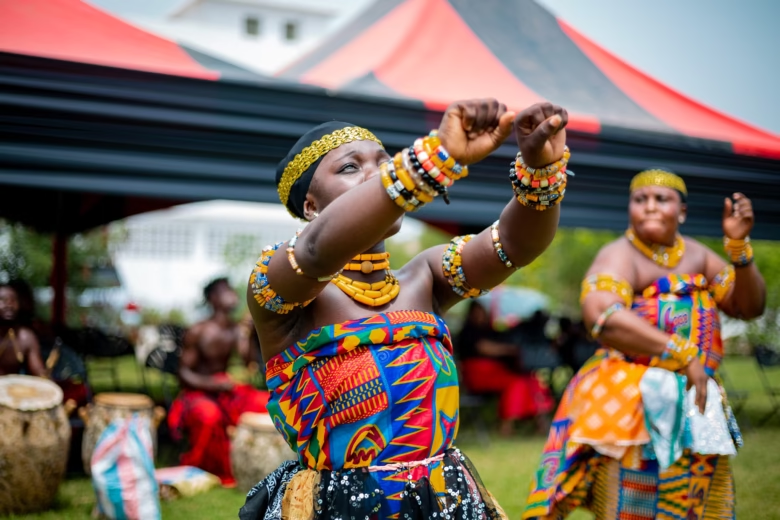Ghana is widely regarded as one of the friendliest and most hospitable countries in Africa. Known for its warmth, respect for tradition, and strong sense of community, Ghana places high value on cultural norms and social behavior. As a visitor, understanding the dos and don’ts of Ghanaian etiquette is essential not only for avoiding unintentional offense but also for building genuine connections with locals.
This guide covers the most important cultural behaviors to know—from greetings and dress codes to dining manners and social expectations.
Greetings and Communication
Do: Greet Everyone, Politely and Respectfully
In Ghanaian culture, greetings are more than a formality—they are a sign of respect and recognition. Whether you’re entering a home, market, office, or even a taxi, always start with a greeting.
- Use appropriate time-based greetings like “Good morning” or “Good afternoon.”
- In more traditional settings, greet the elders first before addressing others.
- A warm handshake (with the right hand) is standard, often accompanied by a slight bow of the head or nod.
Don’t: Rush Through Conversations
Ghanaians appreciate taking the time to ask, “How are you?” and genuinely expect a response. Jumping straight to business or asking questions without greeting first is considered impolite.
For more on proper greetings and regional differences, consult Ghana’s official tourism portal: Visit Ghana – Culture & Traditions.
Body Language and Physical Interaction
Do: Use Your Right Hand for Interactions
The right hand is considered clean and respectful, while the left is traditionally viewed as reserved for personal hygiene.
- Always eat, give or receive items, and shake hands with your right hand.
- If your left hand is occupied, apologize before using it.
Don’t: Show Excessive Public Affection
While holding hands between friends (even same-gender) is common and a sign of solidarity, kissing, hugging, or close physical contact between romantic partners in public is frowned upon—especially in rural areas and religious communities.
Don’t: Point at People
Pointing directly at someone, especially with one finger, can be interpreted as rude or accusatory. Use your whole hand or nod in the person’s direction if needed.
Dress Code and Modesty
Do: Dress Modestly, Especially in Rural or Religious Areas
While big cities like Accra and Kumasi are more relaxed, conservative attire is still the cultural norm, particularly in mosques, churches, or rural towns.
- Women should consider wearing dresses or skirts that cover the knees and tops that are not too revealing.
- Men should avoid walking around shirtless unless at the beach or pool.
- Cover your head if attending a mosque and remove hats or sunglasses when entering formal settings.
If you’re attending traditional festivals or ceremonies, opt for locally made clothing like kente or smock fabric, which shows respect and effort to engage with local culture.
For inspiration and traditional attire etiquette, explore National Commission on Culture – Ghana.
Dining Etiquette
Do: Wash Your Hands Before Eating
In many Ghanaian homes and eateries, especially when eating traditional meals like banku, fufu, or kenkey, food is eaten with the hands. Washing your hands thoroughly before and after meals is standard practice.
Some restaurants provide a bowl of water and soap at the table—use it respectfully.
Don’t: Use Your Left Hand to Eat
Even when dining alone, always use your right hand when eating or passing food. Using your left hand may be seen as disrespectful or unhygienic.
Do: Wait for the Elders Before Eating in a Group
In traditional homes or communal meals, it is polite to wait until the elders or host begins eating before you start.
Social Etiquette and Behavior
Do: Show Respect to Elders
Age is highly respected in Ghanaian society. Always show deference by:
- Greeting elders first
- Offering them the best seat
- Allowing them to speak first in conversations
- Standing when they enter a room (in formal situations)
Referring to elders as “Sir,” “Madam,” or “Papa” (father) and “Maame” (mother) is common and respectful.
Don’t: Raise Your Voice or Display Anger in Public
Losing your temper or shouting in public is considered immature and disrespectful, even if you’re frustrated by poor service or misunderstanding.
- Speak calmly and with a respectful tone.
- If a disagreement arises, address it discreetly or involve a third party for mediation.
Tipping and Gifts
Do: Tip for Good Service
While tipping is not compulsory, it is appreciated, particularly in:
- Restaurants (10% is appropriate)
- Hotels (for porters and cleaning staff)
- Tour guides and drivers
Do: Offer Small Gifts as a Sign of Appreciation
If you’re invited into someone’s home, bring a small gift such as fruit, bottled drinks, or a souvenir from your home country. This gesture is warmly received and seen as a mark of good upbringing.
Religious and Cultural Events
Do: Ask Before Taking Photos
Ghana is rich in colorful festivals, religious ceremonies, and sacred traditions. However, many of these events are deeply spiritual and governed by specific customs.
- Always ask permission before taking photos—especially during funerals, religious rituals, or dances.
- If unsure, consult your guide or a local elder before participating in or observing sacred events.
Don’t: Disrespect Local Customs
If you’re attending events like the Homowo Festival, Panafest, or Akwasidae, take time to learn about the meanings behind the practices. For example, wearing black to a joyous celebration or ignoring traditional dress codes can be interpreted as insensitive.
For festival dates and cultural tips, refer to Ghana Festivals Calendar – Ministry of Tourism.
Gender and LGBTQ+ Considerations
Gender Norms
Ghana is a socially conservative country with traditional gender roles. Women travelers are generally safe but may receive more attention than they’re used to. Dressing modestly and avoiding solo travel at night helps avoid unwanted attention.
LGBTQ+ Travelers
Homosexual acts are criminalized under Ghanaian law, and public expressions of same-sex affection can lead to legal or social consequences. LGBTQ+ travelers should exercise discretion and avoid public displays of affection.
For up-to-date travel advisories, consult your country’s foreign travel office (e.g., UK FCDO or U.S. State Department).
Visiting Homes and Local Communities
Do: Ask Permission Before Entering a Home
It is polite to wait at the entrance or greet the head of the household before stepping inside. Some homes may request you remove your shoes before entering.
Don’t: Show Disrespect to Chiefs or Traditional Authorities
When visiting traditional communities, always show deference to chiefs or elders. If attending a durbar or community event:
- Dress modestly and respectfully
- Address the chief with appropriate titles
- Avoid sitting in a chief’s seat or using a stool reserved for elders
Conclusion
Respecting local customs in Ghana is less about memorizing rules and more about showing humility, curiosity, and a willingness to adapt. Ghanaians are gracious and welcoming, and they often appreciate visitors who make an effort to learn and follow cultural norms.
By understanding these do’s and don’ts, you’ll not only avoid social faux pas but also gain a deeper appreciation of Ghana’s rich cultural heritage—and leave a lasting impression of your own.




